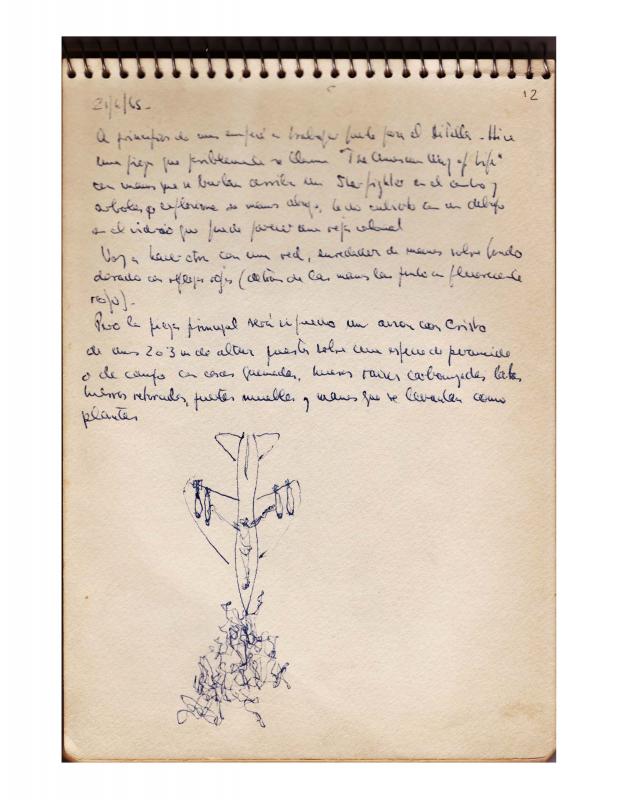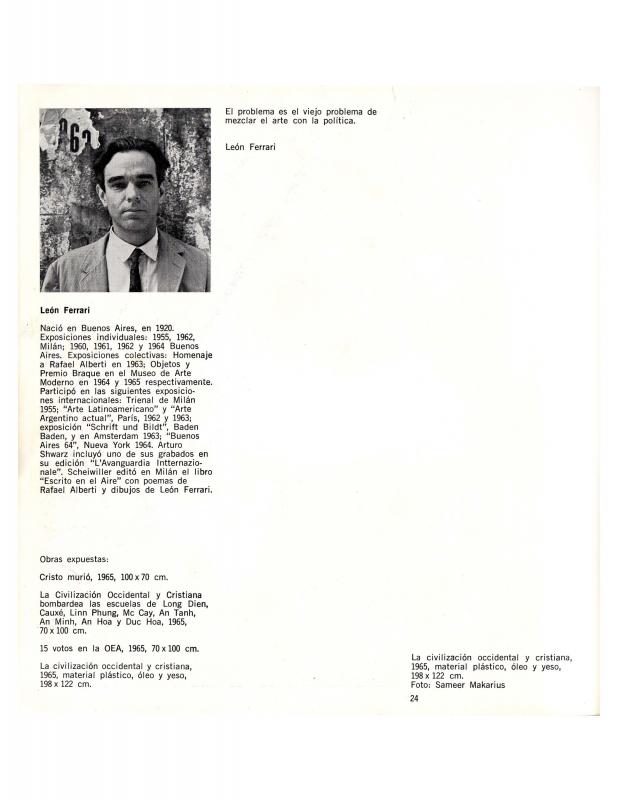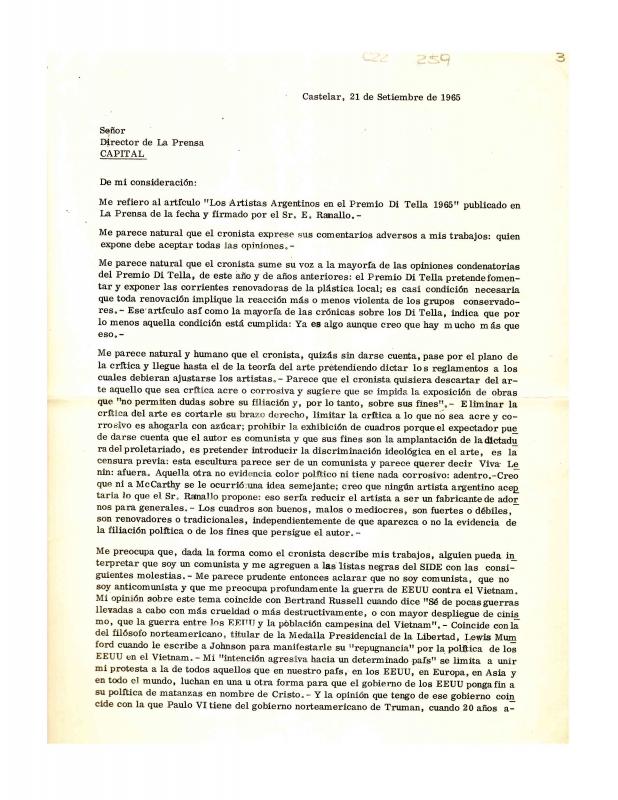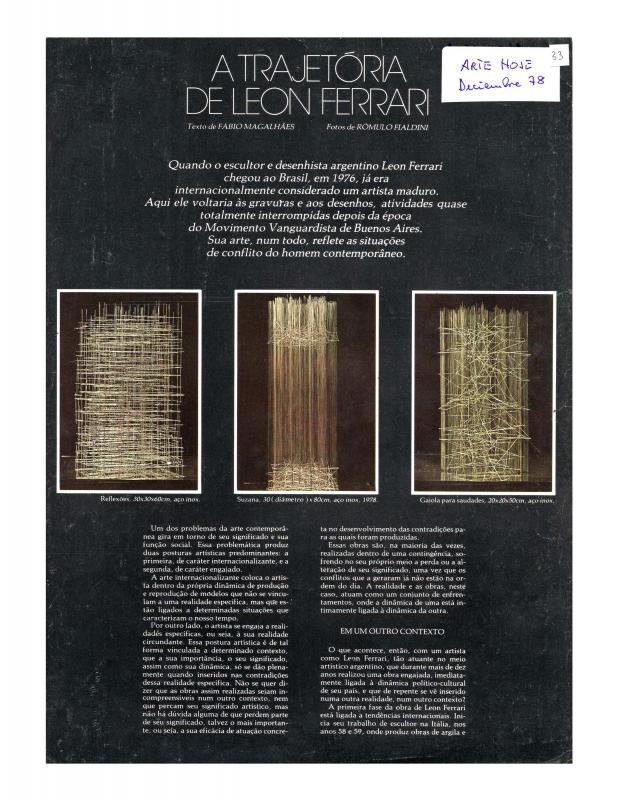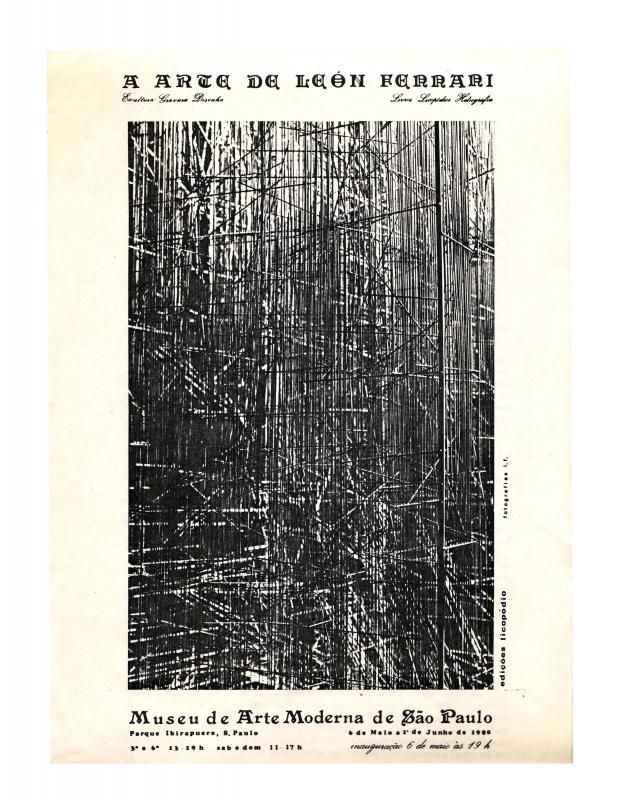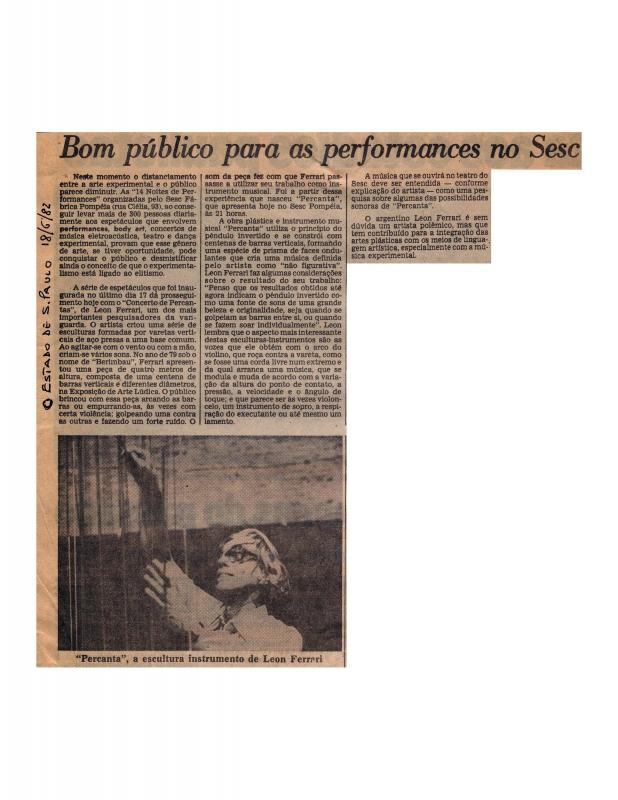León Ferrari (1920–2013) was born in Buenos Aires, the son of Augusto Cesare Ferrari, the Italian artist and architect. The younger Ferrari was a latecomer to the plastic arts, a status which allowed him to function as a link between the generation of artists from the late fifties and the young avant-garde of the sixties. His early works were ceramic sculptures, but in later years he experimented with wire structures, with a visual form of writing, and with collages. There are two distinct themes running through his work: one is a strong condemnation of military dictatorships, American imperialism, and the ideology of the Catholic Church. The other has a more formalistic quality, expressed in a conceptual style and, at times, in the surrealist tradition. His 1965 object-montage, titled Civilización Occidental y Cristiana [Western Christian Civilization], was censured at theCentro de Artes Visuales del Instituto Torcuato Di Tella [the Torcuato Di Tella Institute’s Visual Arts Center] (see documents 743800, 744085, and 761879). It depicts a Christ mounted on a US Air Force bomber that is plunging Earthward. Ferrari was involved in the political conceptualism movement of the seventies (particularly Tucumán Arde, in 1968). In response to the most recent Argentine military dictatorship’s repressive regime (1975-83), he went into exile in Brazil, where he explored a variety of ideas, such as formalism and the reproducibility of a work, as well as the spatial relationship between sculpture and music (see documents 743960, 744392, and 743870, among others). In 1984 his work was once again exhibited in Buenos Aires, where he finally returned and settled. Correspondence between two Argentine artists, León Ferrari and Leopoldo Maler (Buenos Aires, 1937) about the stage version of Palabras ajenas [Other People’s Words]. In1968, Maler was working as a radio announcer at the BBC in London. The production was presented at the Arts Laboratory in October 1968 under the name Listen Here Now. A New Concert for Four Voices and a Soft Drum, directed by Jim Haynes. In 1968 León Ferrari was involved in the political turmoil surrounding the sugar mills in the Province of Tucumán (Northern Argentina), and took part in the eventual artistic expression of that experience—by means of both a final report and a manifesto—known as Tucumán Arde, which was presented at the offices of the Confederación General del Trabajo de los Argentinos (CGTA), the labor union, in Rosario and later on in Buenos Aires. León Ferrari, Palabras ajenas : conversaciones de Dios con algunos hombres y de algunos hombres con algunos hombres y con Dios [Other People’s Words: conversations between God and certain men, and between certain men and certain men and God] (Buenos Aires: Falbo editor, 1967).

